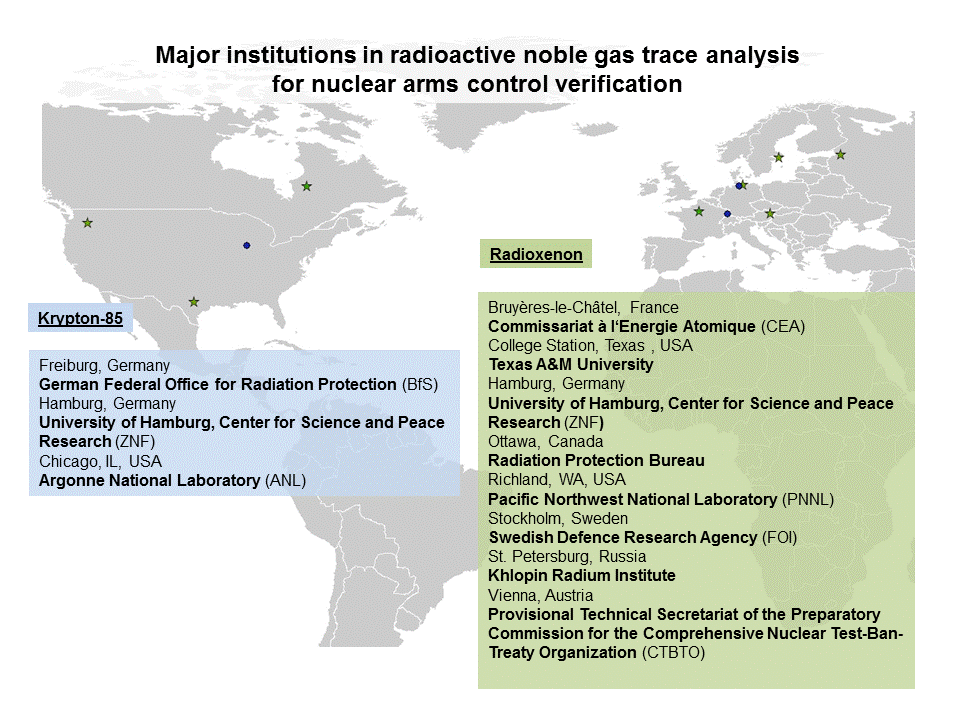Map of worldwide noble gas research
The ZNF in the worldwide noble gas research for disarmament control
The scientific profile of the ZNF is characterized by the development of new methods for the verification of the norm compliance with the control regime on biological and nuclear weapons. These methods should be usable by civil society and contribute to the strengthening of international organizations. The research group specializing in nuclear weapons control has its focus on radioactive noble gas in the atmosphere, which can be used as a tracer for the detection of nuclear weapons tests, or plutonium production.
The world map shows all institutions at which at least one full time employee is doing research in this area. Regarding radioxenon there are, besides the ZNF, seven other relevant institutions, but only a second university. Several state research laboratories are dealing with radioxenon because the application of radioxenon has already been decided on as part of the comprehensive ban on nuclear tests (CTBT).
Krypton-85 as part of the nuclear safeguards for the verification of the Nuclear Non-Proliferation Treaty (NPT) was, until now, only used on national levels. The ZNF is developing a new measurement method, and is working to prove its effectiveness, as well as propose the adoption of this method to the IAEA. The ZNF is therefore the only active research facility with this explicitly peace-oriented goal.
The two other state institutions that are investigating trace analysis of krypton-85 recognize the possibilities of its use for armament control, but do not engage in active research on the subject. Instead, they are pursuing other objectives, such as protection from radiation and environmental analyses. The University of Bern is also pursuing research objectives in the field of treaty verification, but they are focusing on argon-37 for the CTBT. Considering the current state of the landscape in worldwide research into noble gasses for disarmament control, it's clear that the ZNF stands out with its unique Peace Laboratory, dedicated to ultratrace analysis of rare isotopes of krypton.

